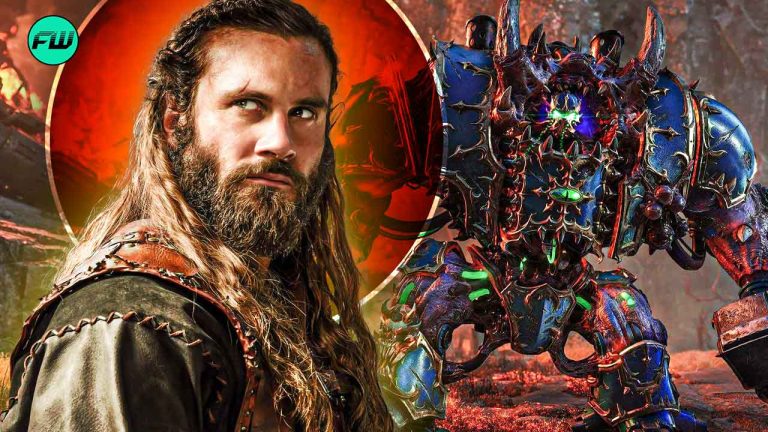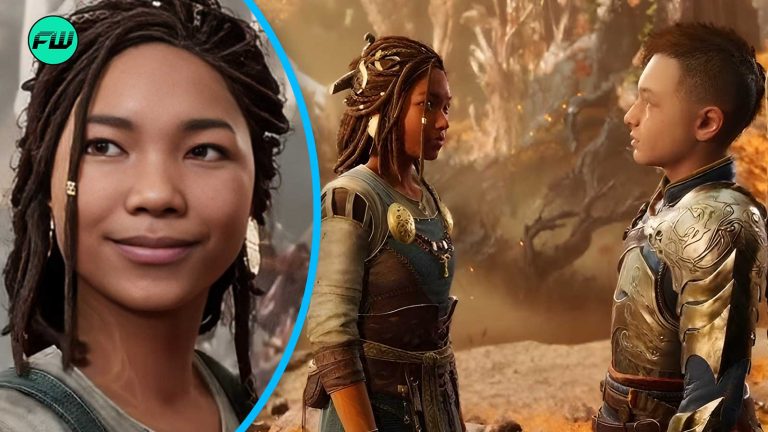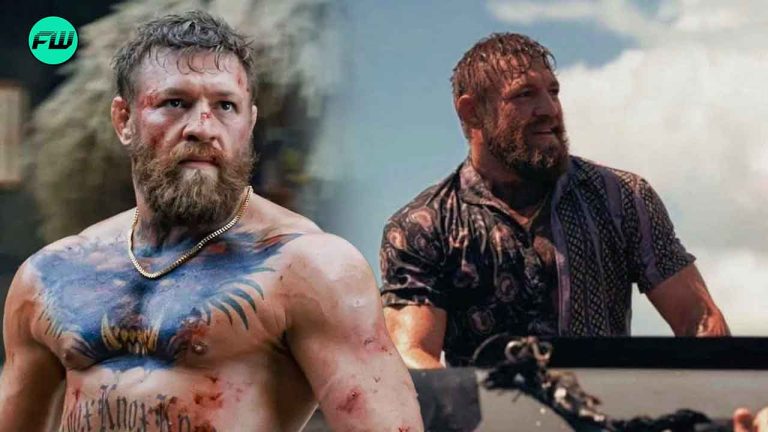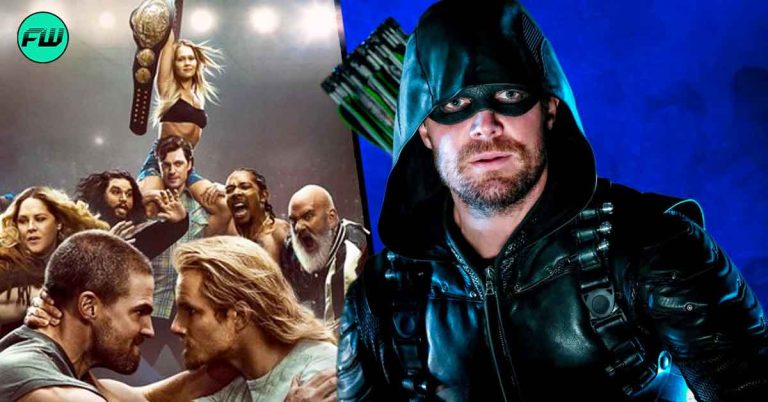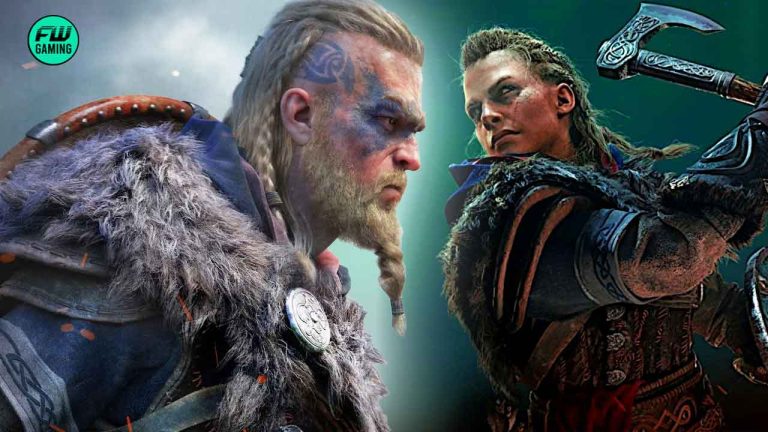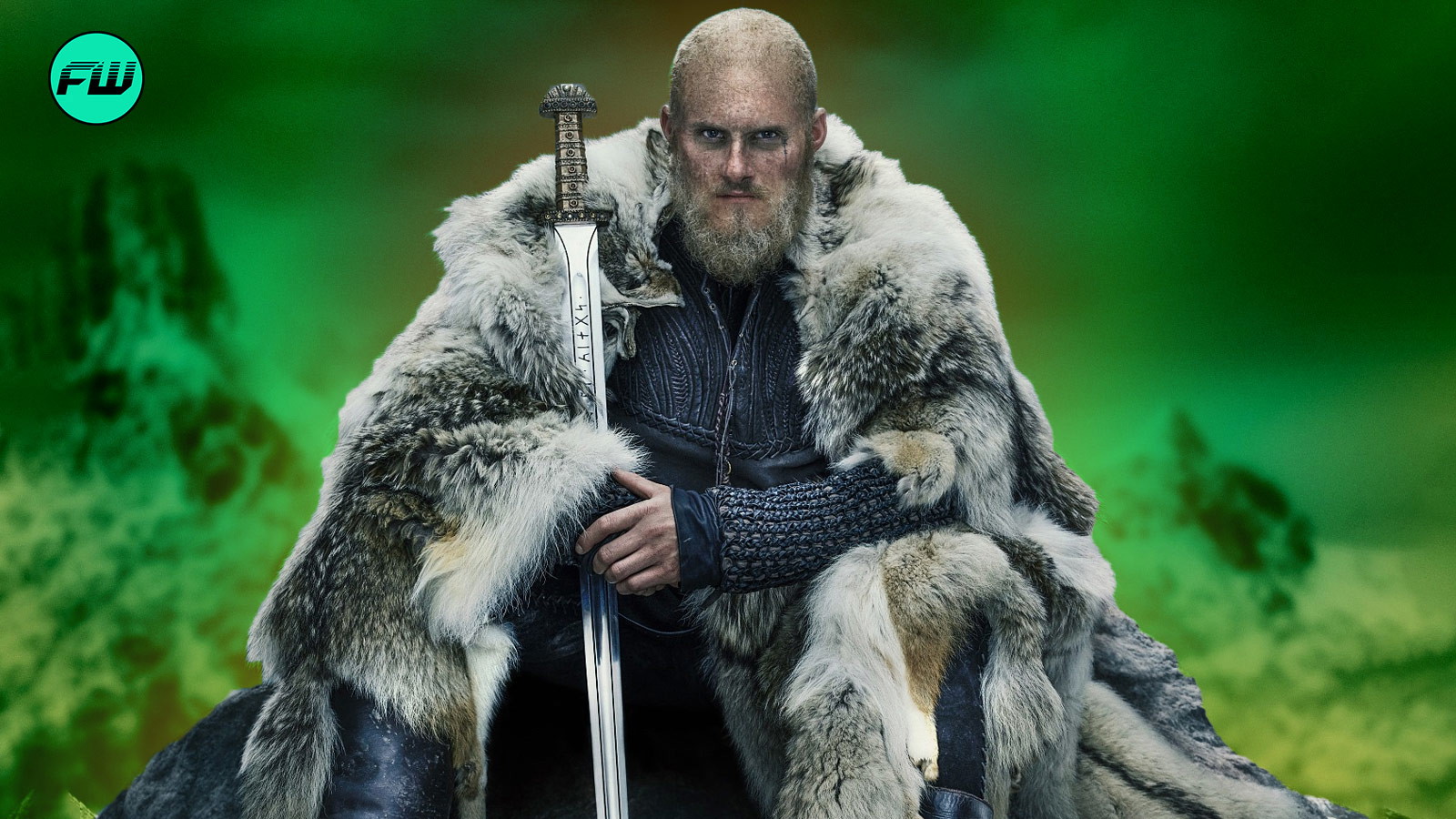
Not every season of Vikings is created equal. Some are legendary, while others feel like a never-ending winter. Over six action-packed seasons, this historical drama delivered brutal battles, jaw-dropping betrayals, and more shocking deaths than you could count on one severed hand. But let’s be real: any show that lasts this long is bound to have its highs and lows.
Vikings started strong, weaving a tale of power, ambition, and blood-soaked adventure. Still, as the years went on, it faced the usual long-running TV pitfalls, repetitive storylines, shifting main characters, and that tricky balance between historical accuracy and dramatic flair.
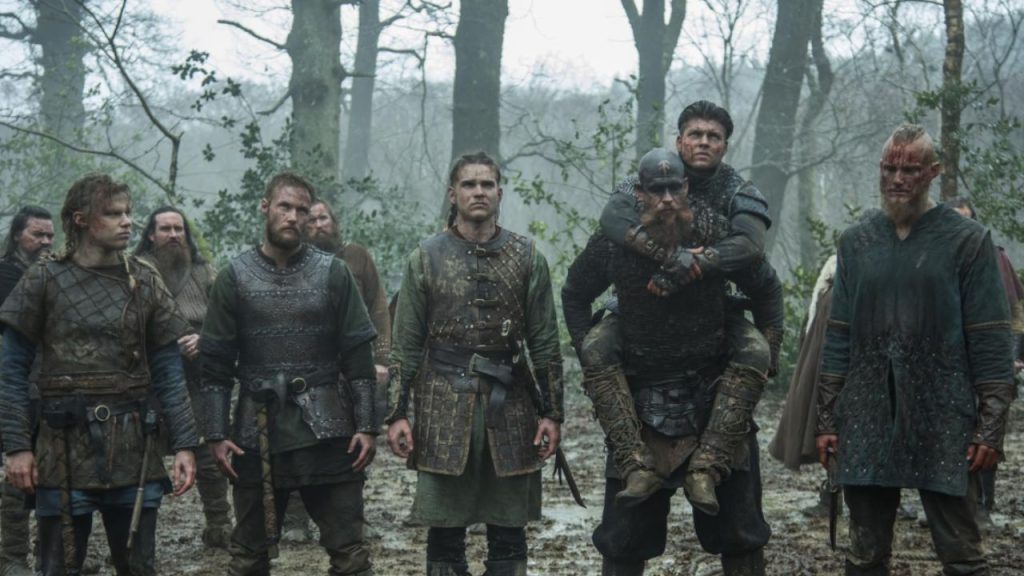
That doesn’t mean the show ever completely lost its edge. Even at its weakest, Vikings had enough gripping moments to keep fans coming back for more. Whether it was the sheer unpredictability of battle, the emotional gut punches of beloved characters meeting their fates, or just the raw intensity of a Ragnar Lothbrok speech, the series always knew how to deliver a spectacle. But which seasons soared like an axe-throwing champion, and which ones struggled to hold the shield wall?
Ranking all six seasons of Vikings isn’t just about plot twists and epic fights; it’s about the full package. Writing, performances, pacing, and that ever-important emotional impact all play a role. So, let’s set sail through the highs and lows of Kattegat’s wildest years and see which seasons truly deserve Valhalla-level praise.
Vikings Season 5
Vikings Season 5 isn’t unwatchable; it’s just the season that makes you wonder if the show should have ended sooner. This is the first full season without Ragnar Lothbrok (Travis Fimmel), and wow, does his absence leave a gaping hole. The man was the heart and soul of Vikings, and no matter how hard the remaining characters try, they just don’t have the same magic. Ragnar’s sons should’ve carried the torch, but instead, they mostly fight each other in ways that feel more frustrating than compelling.
And then there’s the second half of season 5, the real problem child of the series. If the first half of the season was shaky, the second half just collapsed under its own weight. Plotlines go nowhere, characters make baffling decisions, and some twists feel completely unnecessary. Magnus, supposedly Ragnar’s long-lost son, is introduced just to be killed off without adding anything to the story.
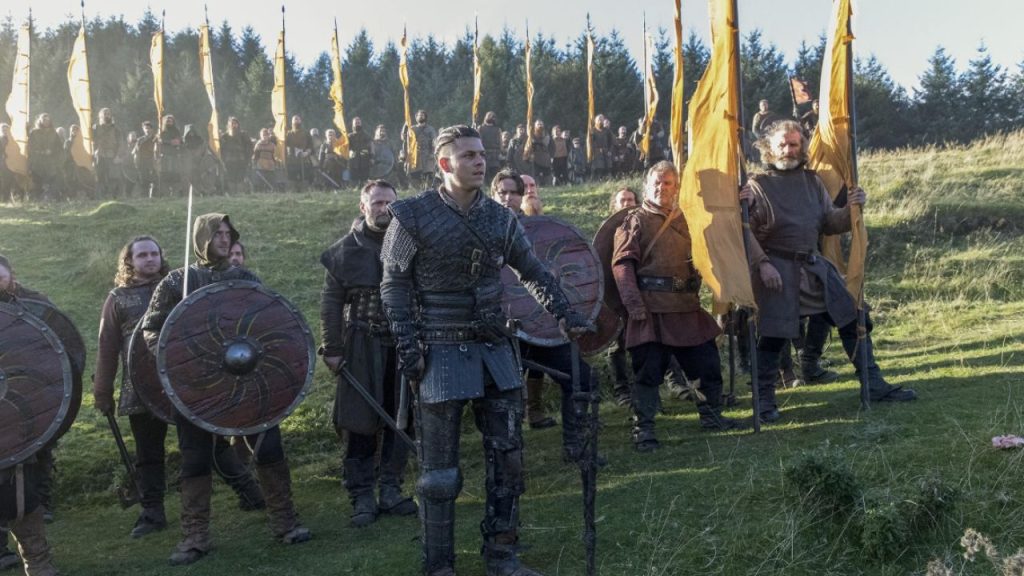
Meanwhile, Rollo randomly claims Bjorn is his son, which makes zero sense, considering he just helped Ivar kick him out of Kattegat. Speaking of Ivar, his transformation from ruthless underdog to full-blown tyrant is a mess. There’s no real depth, just cruelty for the sake of it.
The only saving grace? The storylines in Wessex, where Alfred and Heahmund actually have some interesting arcs. But let’s be honest, when the best part of Vikings is happening far away from the Vikings, you know something’s off. Season 5 is where the show started losing itself, proving that even great sagas can overstay their welcome.
Vikings Season 6
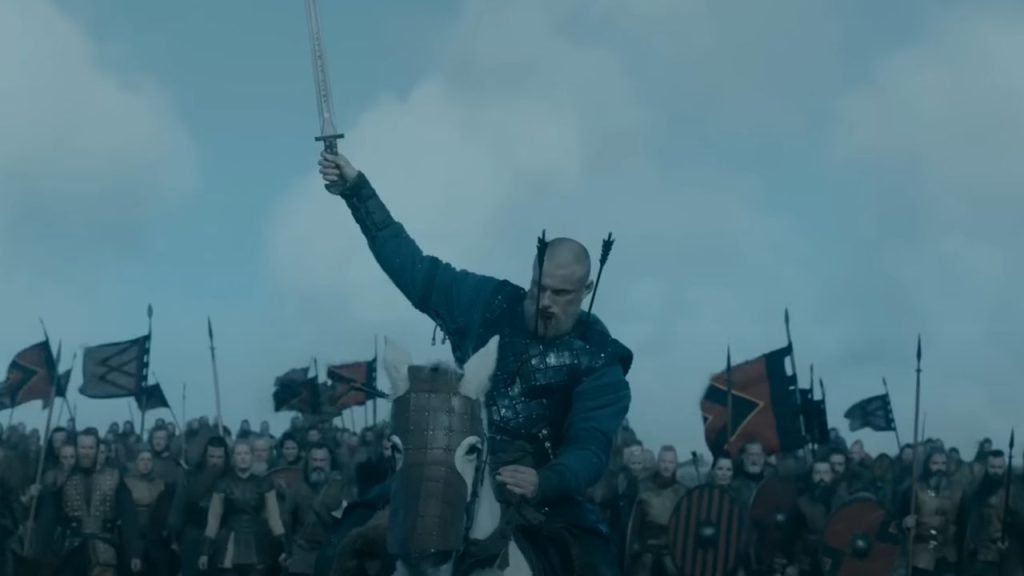
Season 6 of Vikings is a bit of a mixed bag. As the final season, it had a lot riding on it, and while it delivered some epic moments, it never quite reached the heights of its earlier years. The absence of Ragnar is still deeply felt, but at least by this point, his sons have grown into more compelling leads. Bjorn and Ivar take center stage, and their intense rivalry brings some of the season’s best moments, especially in their final showdown.
That being said, Vikings Season 6 loses some of the magic that made the show special. The gritty, grounded storytelling that once immersed us in Viking culture starts slipping away, replaced by grand spectacles and overly complex political plots. Too many new characters get introduced at the last minute, with random Kings, Jarls, and Earls popping up just to serve the plot.
Meanwhile, Ivar’s time in Russia with Prince Oleg and his endless scheming feels like an unnecessary detour rather than an essential part of the story.
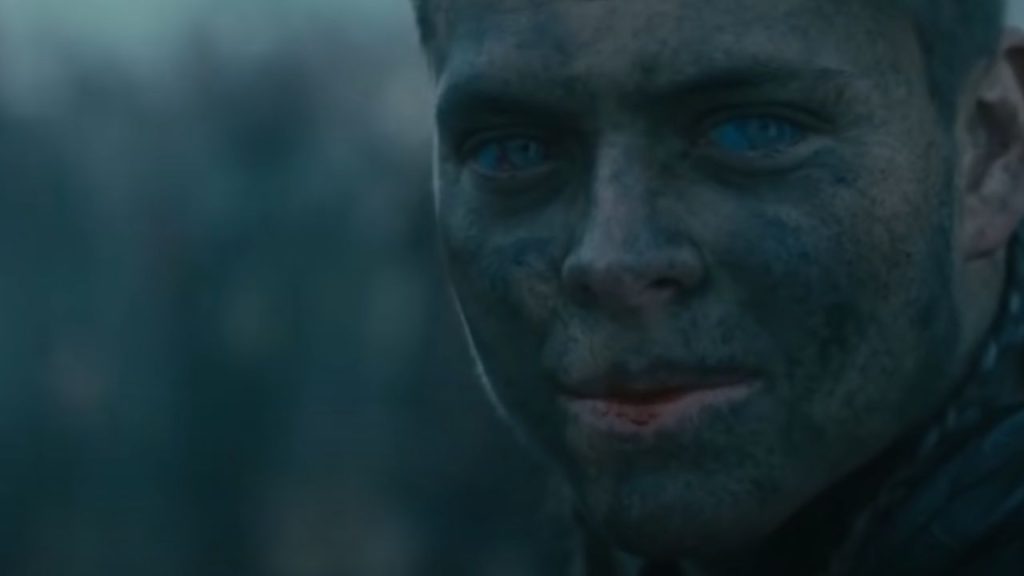
And then there’s Lagertha, one of Vikings’ most iconic characters, who deserved a legendary send-off but got something that felt oddly underwhelming. Her death, instead of being a powerful culmination of her incredible journey, mostly exists to fuel Hvitserk’s arc. It’s a disappointing farewell to a fan-favorite warrior.
In the end, Season 6 is still entertaining, but it leans more into being a flashy historical epic than the deeply personal, character-driven drama it once was. The show may have ended, but its peak had long passed by then.
Vikings Season 2
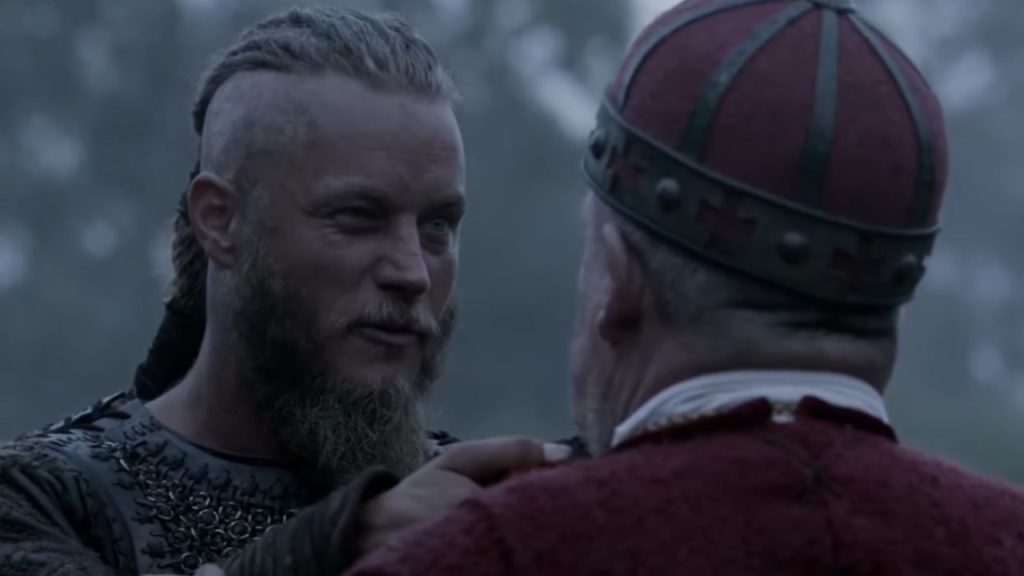
Vikings Season 2 takes everything that worked in Season 1 and dials it up: more battles, more betrayals, and more blood (so much blood). With the characters already well-established, this season gets to dive deeper into their ambitions, rivalries, and questionable life choices.
The dynamic between Ragnar and Rollo is particularly intense, constantly teetering between brotherly love and full-blown war. And if you thought one antagonist was enough, Season 2 throws in multiple, King Horik, Jarl Borg, and the ever-scheming King Ecbert, all making sure Ragnar never has a dull moment.
The show really shines here by making its conflicts feel personal. Ragnar’s bond with Athelstan grows stronger, adding emotional weight to the story, while Floki becomes more unpredictable, keeping everyone (including the audience) on edge.
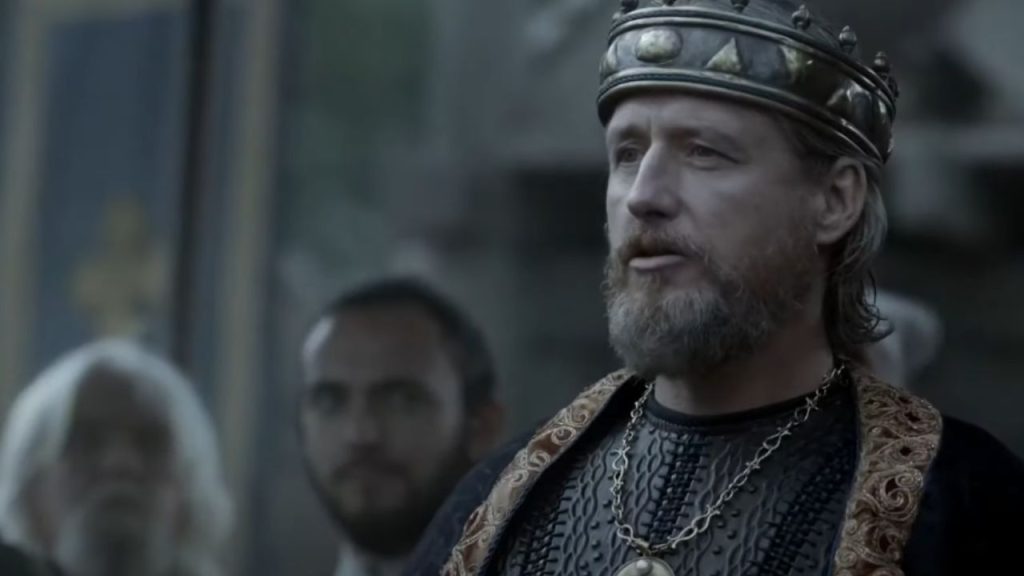
And then there’s the infamous Blood Eagle, one of the most brutal executions ever put on TV. Poor Jarl Borg meets his end in a way that is equal parts horrifying and mesmerizing, all set to a haunting Wardruna score. If that wasn’t enough carnage, King Horik also gets taken out in spectacular fashion, proving that messing with Ragnar is never a good idea.
By the season’s end, Ragnar stands victorious, gazing out over his new kingdom. He’s no longer just a warrior; he’s a king. And with that, Vikings solidifies itself as a must-watch television show, proving that Season 1 was just the warm-up for the chaos to come.
Vikings Season 4
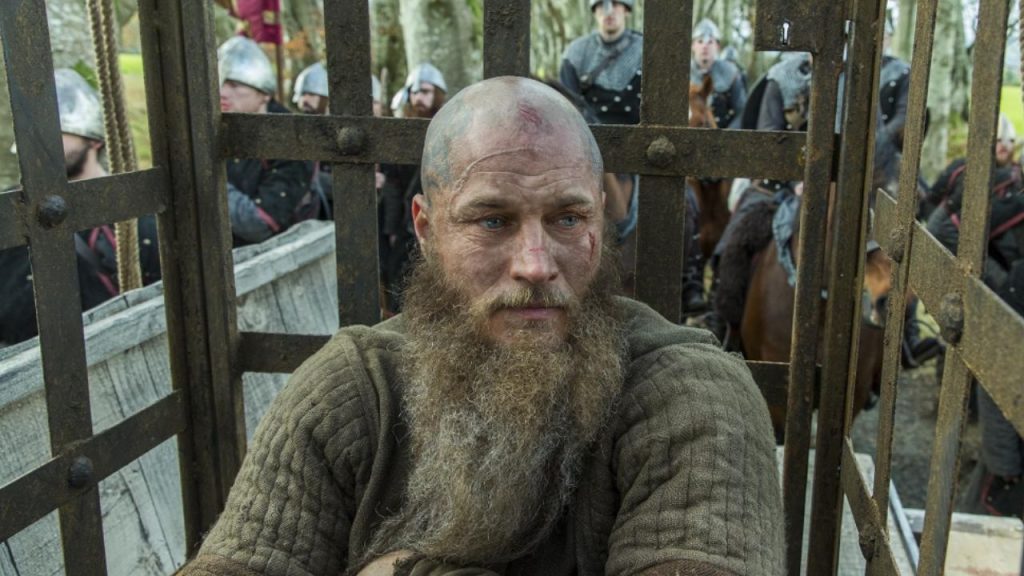
Season 4 of Vikings is where things start shifting, sometimes for the better, sometimes not so much. Ragnar is still around, but this season focuses on his downfall rather than his rise, which makes for some compelling but less satisfying storytelling. The show expands its focus to other characters, particularly Bjorn, Rollo, and King Ecbert, which is great but also spreads the narrative a bit thin.
The first half is a wild ride. Rollo’s betrayal finally pays off, as he rises while Ragnar falls. Bjorn proves he’s no longer the boy from Season 1, taking on berserkers and bears like it’s just another Tuesday. And King Ecbert? He’s still out there, being the ultimate mastermind of Saxon politics. But not everything works. Yidu’s storyline feels forced, and Ragnar’s choices get increasingly questionable. His moral decline is fascinating to watch but also hard to stomach.
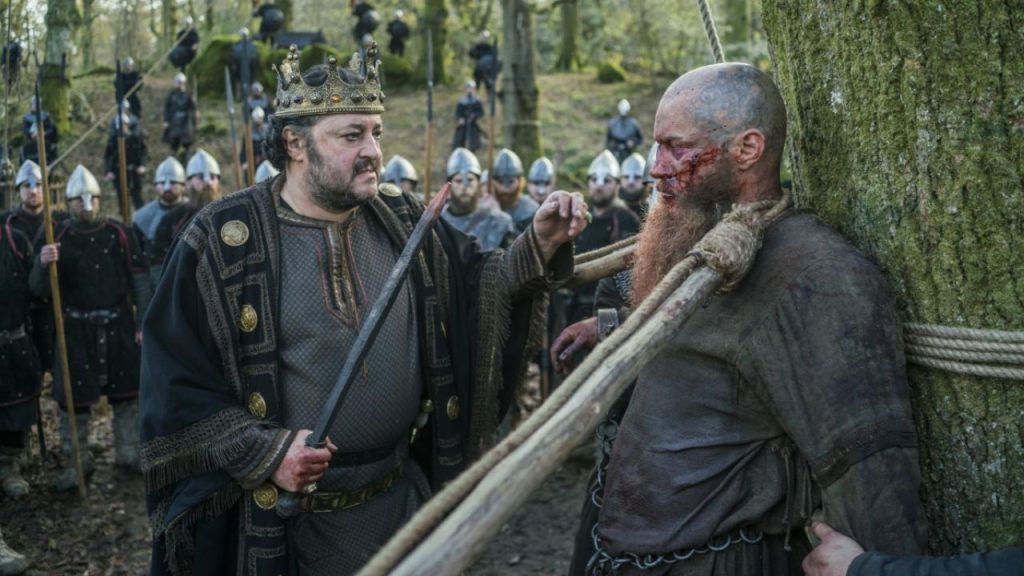
Then we hit the second half, which is Ragnar’s farewell tour. Broken and reflective, he knows his time is up, but he’s determined to go out on his terms. His final conversations, especially with Floki and Ecbert, are beautifully written, making Episode 14 one of the best in the series. And then, in a move that took serious guts, Vikings actually kills off its main character.
After that, it’s all about revenge. The Sons of Ragnar unleash chaos, setting the stage for a new era. While Season 4 is still top-tier Vikings, the cracks start showing, making it feel like the show is just past its peak.
Vikings Season 1
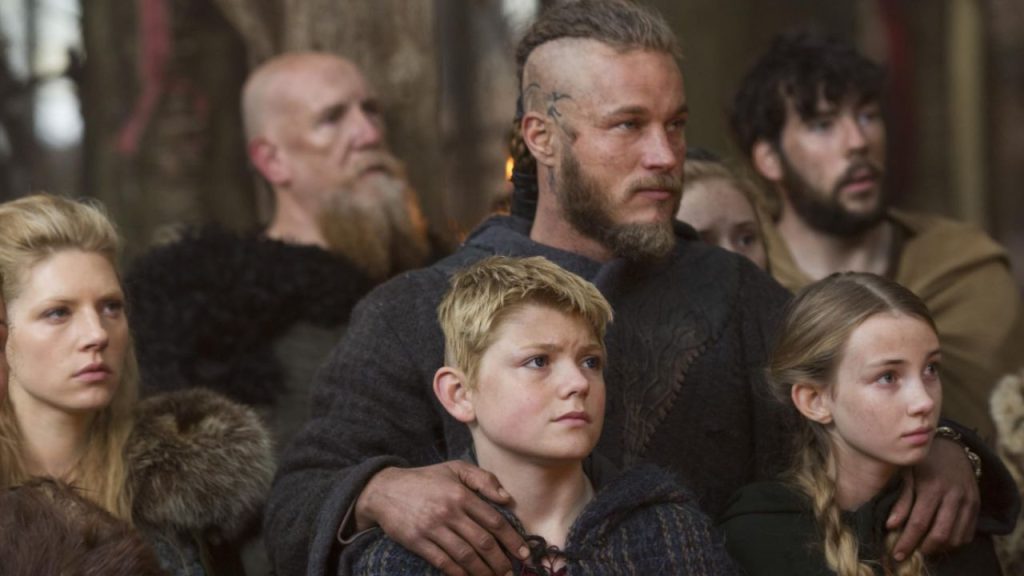
Season 1 of Vikings is where it all begins, and honestly, it’s nothing short of excellent. The world-building is immersive, pulling viewers straight into 8th-century Viking life, how they governed, worshipped, farmed, and fought. But what really sets this season apart is the writing. The plot is gripping, well-paced, and packed with complex, multi-dimensional characters.
At the center of it all is Ragnar Lothbrok, a protagonist you can’t help but root for. This is Ragnar at his purest, ambitious, curious, and not yet corrupted by power. He’s surrounded by an equally stellar supporting cast: the fierce and independent Lagertha, the eccentric but brilliant Floki, the ever-loyal (but deeply conflicted) Rollo, the wise Athelstan, and young Bjorn, who’s just starting his journey.
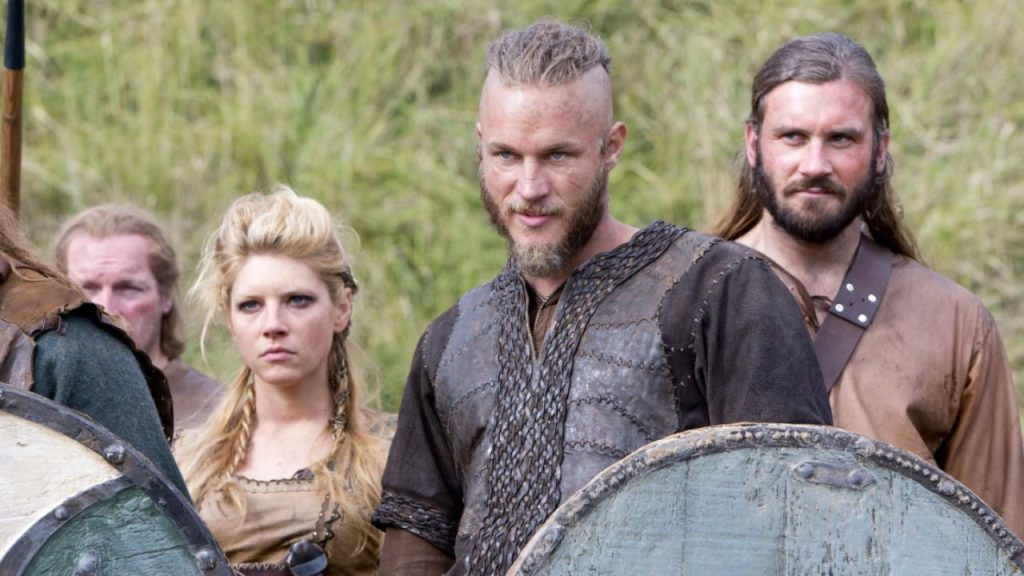
Even Earl Haraldson, played by the legendary Gabriel Byrne, is a fascinating antagonist, harsh, formidable, but not entirely unsympathetic. What makes Vikings Season 1 truly shine is the dynamic between these characters. Every conversation, every conflict, and every fleeting moment feels raw and human. Rollo’s love-hate relationship with Ragnar, Floki’s unpredictable nature, and Lagertha’s unwavering strength—these are the elements that lay the foundation for the epic saga to come.
This season doesn’t just introduce us to the world of Vikings; it makes us care about it. And that’s why it’s one of the show’s best.
Vikings Season 3
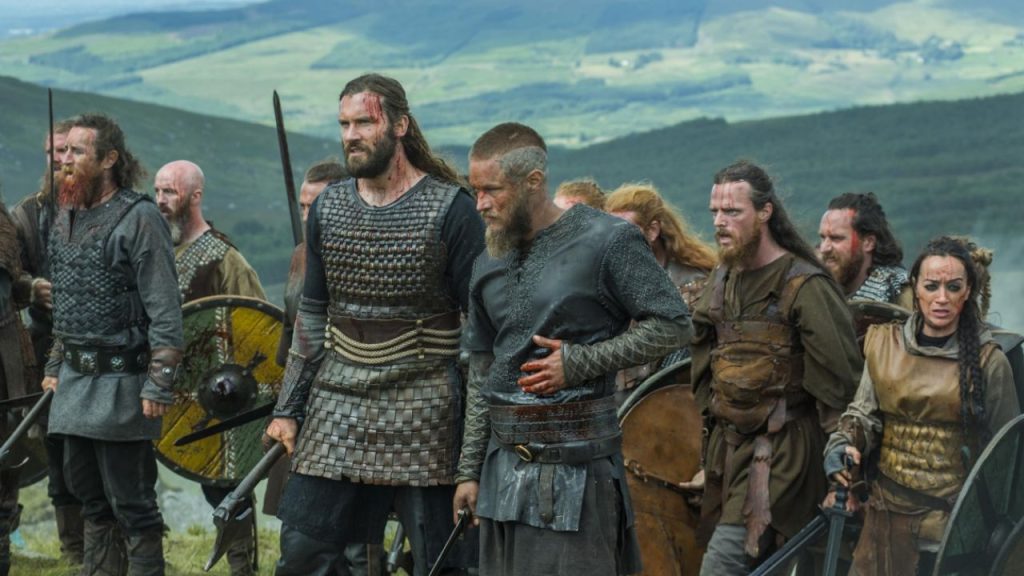
Season 3 of Vikings is where the show reaches its absolute peak. It builds on everything that made the first two seasons great, blending intimate character moments with grand spectacle in a way that few historical dramas can pull off. This season truly cements Ragnar’s legacy, both in the show and in Viking lore, with his legendary sack of Paris standing as one of the most iconic moments in the series.
At this point, Ragnar is at the height of his power, but being King comes at a price. He’s forced to make difficult decisions that lead to tension, betrayals, and even deaths within his inner circle. His relentless pursuit of new lands and new challenges brings him to Paris, where he faces his toughest conquest yet. The city’s formidable walls force him to get creative, leading to his infamous trick of faking his death to gain entry. It’s a masterstroke of cunning that defines who Ragnar is as a leader.
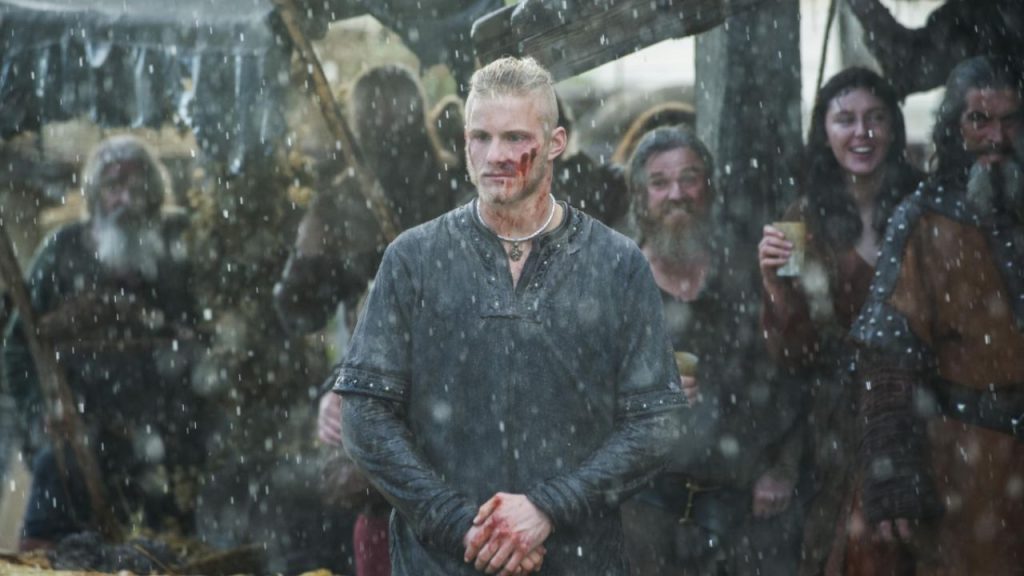
But the season isn’t just about war; it’s also deeply personal. Athelstan’s journey takes center stage, leading to his shocking and tragic murder at the hands of Floki. It’s a moment that shatters Ragnar, and the season ends on a chilling note when he quietly reveals that he knows the truth. This final exchange sets the stage for an explosive Season 4.
With unforgettable battles, unexpected betrayals, and seismic shifts in the power dynamics, Season 3 is Vikings at its finest. It’s thrilling and emotional and completely changes the course of the show moving forward.
This post belongs to FandomWire and first appeared on FandomWire
